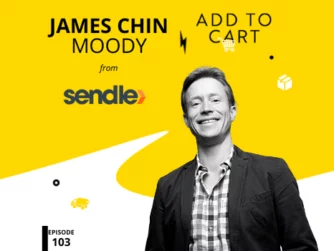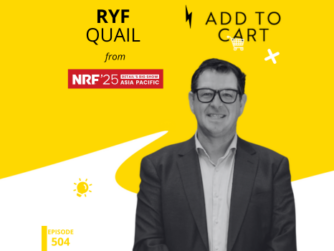In this episode of Add To Cart, we are joined by Jess and Stef Dadon, the duo behind the How Two Live blog and podcast and Founders of the TWOOBS footwear brand. You’ll hear how the sister’s lives exploded after they achieved the ultimate paparazzi-pulling stunt at Paris Fashion Week, why they cancelled their entire new range of shoes post-Covid and why they see a commitment to sustainability like eating a giant pizza.
“Small brands need to think outside of the box and just be like, what can I do that’s going be minimal input for maximum coverage?“
Jess and Stef Dadon
Questions answered in this episode include…
- What has surprised you most around sustainability in fashion?
- Are you still getting cut through from organic social content?
- Is wholesale or direct to consumer more profitable for you?
Turning a $500 launch into a million-dollar PR stunt
(Jess) We were in New York fashion week for our blog, then ‘How Two Live’ and it was February, we were also launching TWOOBS, which was a line of summer sandals. And it was February in New York and it was negative 20 degrees, like the dead of winter, so cold. And we thought that there was something funny in the juxtaposition between those two things, how the hell are we going to launch summer sandals in the dead of winter? So we ended up finding three models on Craigslist, we dressed them up in the best beach attire and TWOOBS.
We took them outside these New York fashion week venues, which typically have a lot of photographers and lots of people outside. We just had music and we had beach stuff. They got absolutely mobbed by paparazzi, and it was our $500 launch. We created a video of it and the video went viral. It was pretty savvy, but as Steph said, it has definitely followed us around.
(Stef) And I’d say that we got millions of dollars worth of PR on that stunt. We were the whole front page of the Huffington post. It was incredible press. I think it’s important for small brands to think outside of the box like that, and ask ‘what can I do that’s just going to be minimal input for maximum coverage? What’s really going to get people talking’. And that’s what we do really, really well, but that being said, that doesn’t necessarily sell shoes. Those things are great for reputation, but it does take a lot more than that, particularly in this day and age in order to actually sell.
Fashion and sustainability
(Jess) I think that the largest problem that we’re facing as an industry is the level of greenwashing that’s happening. So that’s just people presenting that they’re doing really sustainable things, when in actual fact they’re not that great, or they might be 1% great, but also 99% bad and they’re not talking about that. I think that we really need complete transparency in order to create meaningful change.
It’s really amazing now to see customers demanding that, and customers are even demanding it from us. When we think we’re being as transparent as can be, our customers will call us out and be like, “Uh uh, what about that? What’s hiding under there?” It forces us to also look at our own stuff and say “Oh, you’re totally right, we can be better as well”
I like to look at sustainability like a pizza and the pizza is really big, really overwhelming, and really scary. And you probably don’t know what ten of the slices even look like, but the first two slices you can say, and they’ve got a really low barrier to entry.
That’s what we’ve done right now with TWOOBS. We have just taken those first two slices and been like, okay, we can eat these. We can take our existing materials and just switch them out for recycled ones. We can minimize our carbon and offset it, we can create a recycled program where our shoes are made into playground nets, but then what those extra ten slices look like to me is, okay, well, how are we going to make our shoes recycled into new shoes?
That seems like a really massive logistical issue, practical issue, costly, so many things, but that is what the future of fashion is going to be. So now that we’ve kind of figured out those two slices, we’re starting to eat away at the rest of it. And what that looks like is re designing our shoes from the very beginning.
I think that’s the biggest thing with sustainability that we’re seeing in fashion is, if you want to bring it in, it has to be right at the start, you can’t create a product and then think about it at the end. So we’re redesigning our entire offering for the next year with sustainability at the core of it.
Direct to Consumer vs In Store
(Stef) We did launch Direct to Consumer when we launched TWOOBS in 2016. And one of the biggest challenges was that people would come up to us and be like, ‘Oh, you’ve got a brand, awesome! Where are you stocked?’ And we’d say, ‘Oh, we’re only online’ and they’d go ‘Oh okay’. And we started to get this sense that there was this lack of credibility that we had because we were only online. And I do think that that is shifting somewhat as direct to consumer becomes more and more the norm and particularly post 2020, where a lot of retailers are struggling. We did see really big benefits in going into stocking in some retailers and having that clout of being partnered with those big names.
So, we started to get approached by retailers and we were like, all right, this feels right. So that was when we started stocking in David Jones in The Iconic and we’re going into Bloomingdales in the U.S. We will also being stocked in a handful of boutiques, but there was so much that we didn’t even foresee that would go into shifting from being an online only business into wholesaling.
So, there was the fact that our margins took a massive hit to the point where we have 60% off sales online right now, to clear out old stock, to make way for our sustainable environmental stuff that we won’t be discounting, but we make the same margin on that, that we do in selling to the big retailers.
So when you really start to look at your bottom line and you start to look at all the system changeovers that you have to do, all the logistics that go into it, it’s not necessarily really worth it unless you’re going to be looking at massive volumes with retailers and being environmentally minded, which we are now, massive volumes isn’t actually what we want to get into, unless we can do it in a really sustainable way, which we’re finding is potentially an oxymoron.
So we’ve really, this year, taken the opportunity to pull back. We still are in some key retailers at the moment, but we see so much more opportunity in direct to consumer and really being able to control the brand, control the messaging and particularly control the sustainability element of it.



